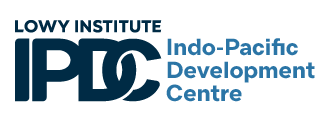A big debate has kicked off about the interaction of security and the economy as being far more complex in the present than in the Cold War era, when the United States and Soviet economies were largely disconnected. The difference today is China, whether a market, a rival or both – with the fashion in the United States to talk of “de-coupling”, particularly in supply chains, having now largely given way to the concept of “de-risking”.
The question is: how?
Not simple, according to Johns Hopkins University professor Henry Farrell, so you need to experiment. As Farrell puts it:
We need government institutions that can come up with reasonable representations of complex problems involving both economics and security, take actions that look to solve those problems, and have feedback loops that allow policymakers to revise those actions when they turn out to have unexpected consequences.
De-risking for Australia looks different from the de-risking for the United States. For the United States, it is about finding the vulnerabilities in supply chains for defence materials and critical infrastructure that they are not able to replace with domestic production or friendly supply. For Australia, its small-scale domestic market, lack of industrial diversity, and advantage in commodity exports, leave little scope for bringing the supply chain on shore, leaving friendly supply as a necessity. Here the risk lies: first, in the reliability of such supplies should the friendly country’s priorities change, and second, in the potential for disruption to the movement of people, data, and goods that make up this supply. Australia needs a lot of friends to de-risk its supply chains.
While Australia’s policy response needs to be different to that of the United States, the pathway to getting the policy settings right requires the same approach. Both countries need to get a better handle on the consequences of policy choices in a system where human security is tied as much to people’s economic and social circumstances as it is to their personal freedoms.
National security is only one element of human security, albeit an existential one should another world war erupt. Environmental security is another element, even if a higher level of temperature and sea level with associated disasters are baked in for some decades, if not centuries. And national and global environmental security risks are related, as one consequence of climate change will be accelerated movement of people whose lives are disrupted by disasters, both slow (drought and sea level rise) and fast moving (floods, storm surges). Mass movement of people is a likely trigger for conflict, and nationalistic responses can undermine more careful policy responses.
Populist politics of the type seen increasingly across the world also present a real risk of policy responses that will reduce human security.
The problem for careful policymaking is that a defence policy that focuses just on military capability, or an environmental policy that just focuses on subsidising green energy, ignores the interactions that these policies have with other elements that determine human security. They also compete for the same pot of taxpayer funds. The Tinbergen rule of “one instrument one target” was not meant to imply that you only needed one policy to achieve one objective, rather it was you need at least as many policy instruments as you have policy goals.
The challenge for making policy where there are multiple objectives and complex systems is the need to understand all material policy and goal interactions. That is, those interactions that are big enough to undermine any important goal in the short and medium, if not long run. But most government institutions are not designed to consider more than their portfolio of interests, and coordination mechanisms are weak.
It is hard enough to get the benefits of things such as expenditure on early childhood learning offset against future education costs, let alone ask government agencies to weigh the costs of de-risking action, like banning the import of one country’s products, against the improvement in security this action delivers. Yet if the goal is to improve human security, this is exactly what we have to demand that governments do.
And as Australians’ human security depends on the human security of those living in our region, and by extension all those on Earth, we need international organisations to revise the rules that govern cross-country interactions to take account of this more complex world, whether on trade and investment, refugee flows, or use of the global commons.
A starting point is greater clarity on the common goals – what are the important objectives? These will vary across countries, and even within democracies the importance of different goals may vary with political parties. Clarity on the human security goals that countries, and parties within countries, have in common is needed to guide the assessment of what matters.
The next step is to build more collective approaches to analysis, to widen the expertise that is applied to analysing the policy levers. Too often security analysts, economists and other social scientists, neglect the many assumptions they make in analysing whether a policy will achieve their goal, let alone the impact on goals not in their remit. Multidisciplinary teams help call out these assumptions and should be used to test whether these assumptions hold.
And where no-one really knows, policy should be designed to find out. To return to Farrell’s point: experiment. A careful approach will evaluate not just whether the policy is having a direct effect on the intended target, but what else changes as a result. It might be that the de-risking policy adopted by the United States has found the right balance for them. Australia needs to ensure that its approaches find the right balance for a very different economy. To do this, government needs to rethink how policies to deliver human security are developed.


